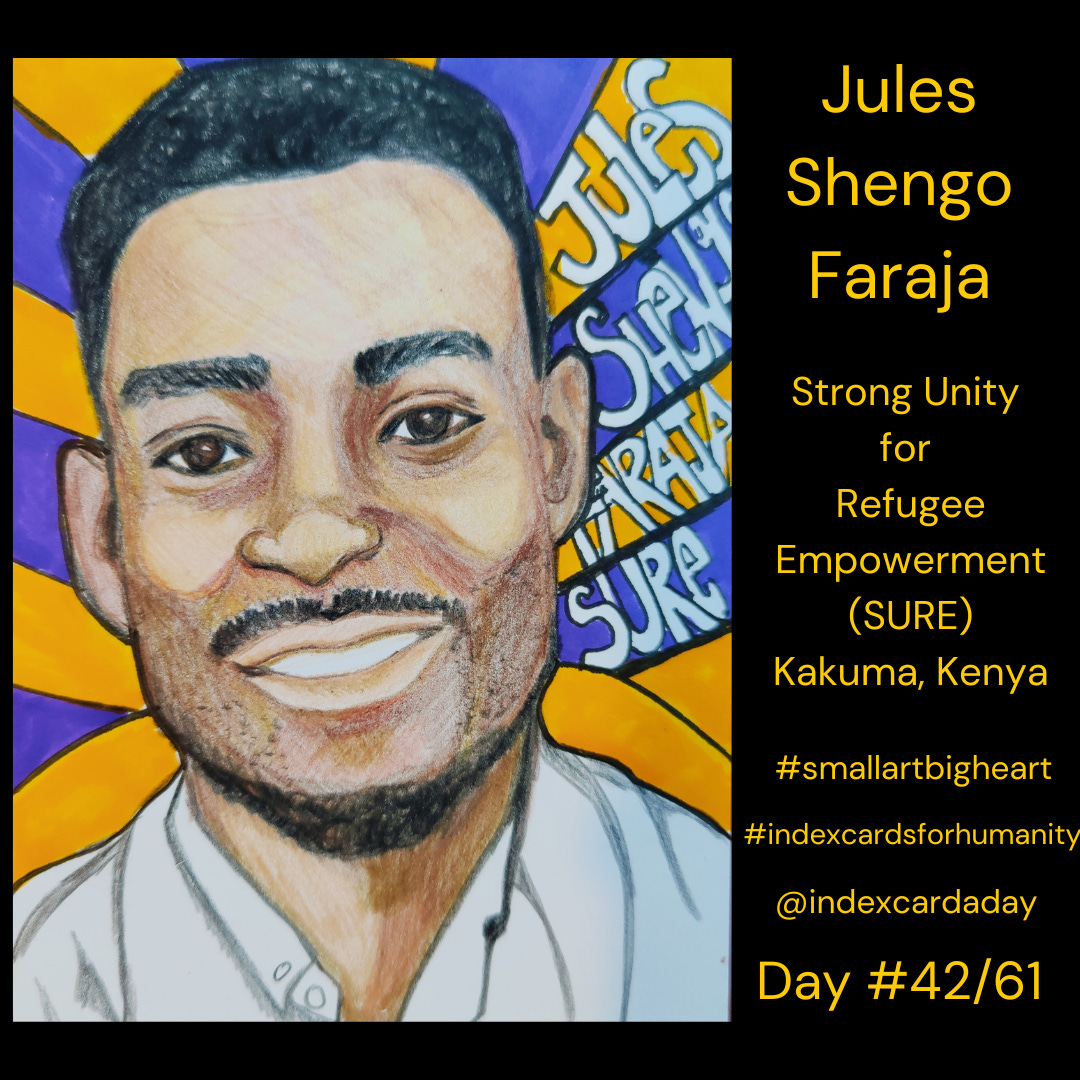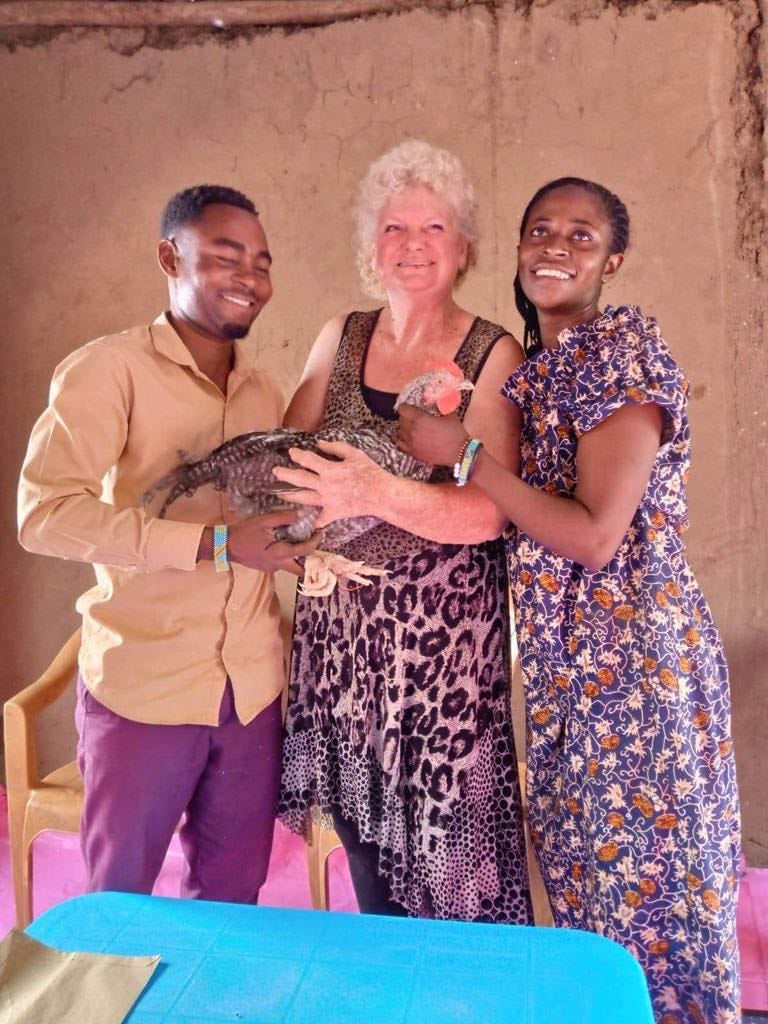Jules Shengo Faraja, Strong Unity for Refugee Empowerment, Kakuma, Kenya
"I can’t give up. I’m not working for myself. I am working for the community."
Meet Jules Shengo Faraja, a 32-year old Congolese refugee living in Kakuma Refugee Camp in the semi-arid Northwestern region of Kenya. He is the founder and director of Strong Unity for Refugee Empowerment (SURE), a 15-member registered community-based organization addressing food insecurity through permaculture, literacy through English and math classes, and psycho-emotional-social development of youth through music and the arts.
Seven years ago, during an intensification of violence in the Democratic Republic of Congo, Jules fled for safety, leaving his job as a primary school teacher and his home behind. But that wasn’t all that was taken from him. “My parents were killed. I came with one brother and one sister. I was seeking a way to get some peace and live together with other people.”
He found himself in Kakuma Refugee Camp in Northwestern Kenya, confronted with harsh living conditions characterized by insufficient food, limited income generating opportunities, and a host of other challenges at every turn.
As an educator, he turned to what he new best - community service and teaching.
People Can’t Live Without Food
We are still doing permaculture; people can’t live without food. - Jules Shengo Faraja
At Kakuma Camp, day in and day out, the vast majority of refugees barely survive, living on next to nothing. A family of four is given an 8 kg bag of grain monthly, that is if the World Food Programme (WFP) has enough funding. Earlier this year, food distribution was halted for a full two months. And, so, people must find ways to grow food for themselves.
Within a year of arriving at Kakuma, Jules had built relationships and made friends, enough to band together, pool what little funds they had and start a food growing program.
Over time, through research and networking as best as he could with limited technology, he became acquainted with the concepts of permaculture. He found Elisabeth Fekonia, an Australian permaculture expert, who has since become his mentor, advisor, and family friend. With her support, Jules and his colleagues developed a permaculture program, targeting training specifically to single mothers in the camp.

The first permaculture workshop that SURE offered was attended by 25 people. They now have more beneficiaries than he can count. Permaculture workshop attendees receive not only instruction in design concepts but also seeds (when available) as well as follow-up visits by Jules and his team to support their growing needs, answer any questions, and provide advice.
SURE members are starting to save seeds from their growing operations and are planning on developing a seed bank which will reduce input costs and help them become more self-reliant.
Over the years, SURE alongside other community members have started and maintained community gardens. Planting is done directly in the ground, in raised beds and containers. Jules cited water access as the biggest problem due to the fact that rain comes so infrequently at Kakuma and the camp has insufficient infrastructure to deliver a steady supply of water from elsewhere. SURE members were able to temporarily remedy this sutation by digging channels from the plots to a nearby school, but it’s not enough.
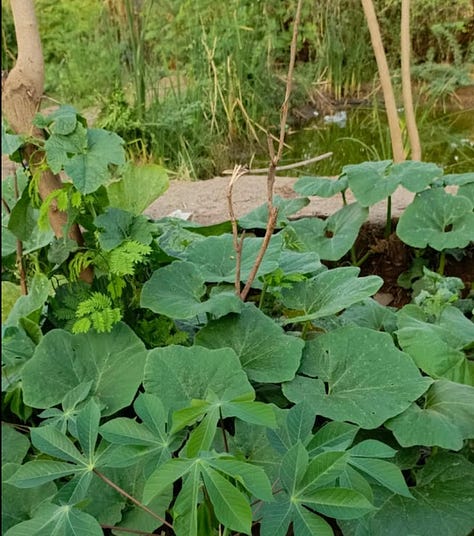


Despite these challenges, SURE members dug a very large hole to farm tilapia. Aquaculture, while challenging due to the availability of water, has become a critical component of addressing food insecurity and nutrition in the camp.
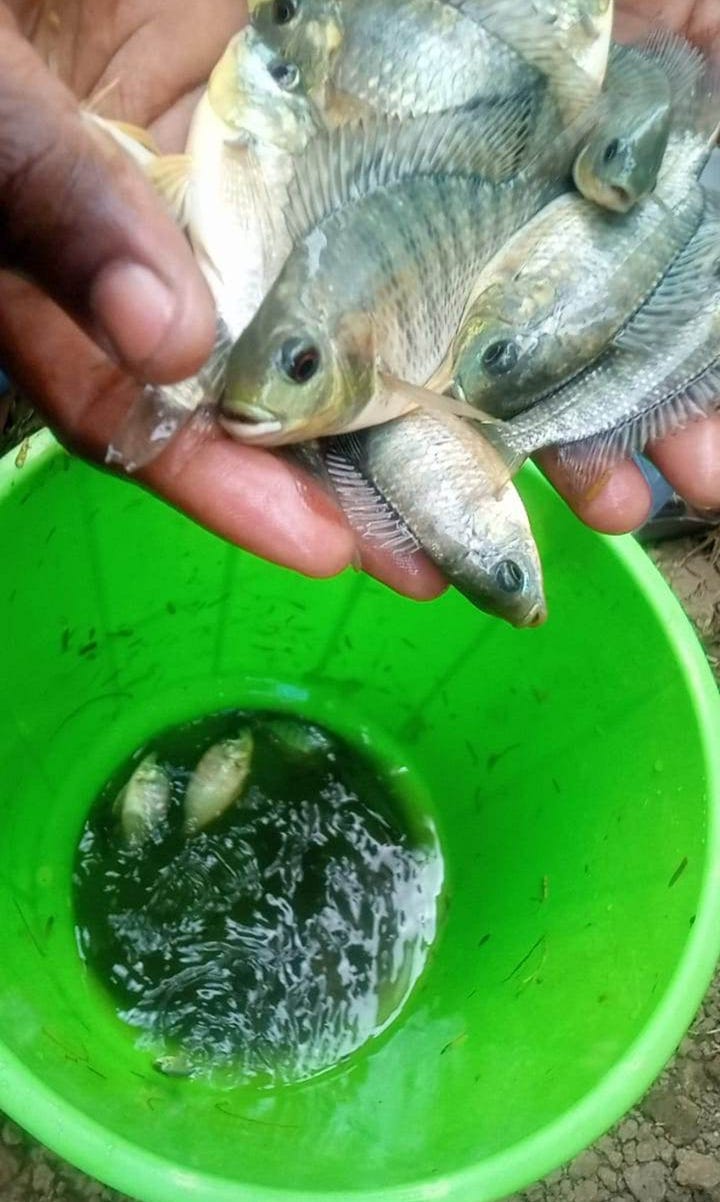
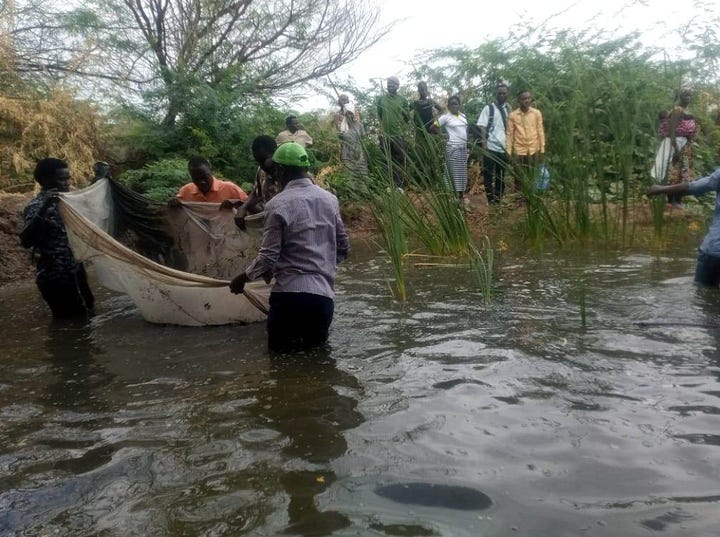
After School Educational Programming
The members of SURE also address the literacy needs of children who are either in overcrowded camp schools or do not attend at all. They serve 130 children, ages 4 to 13, split up into 2 classes. “We learn outside. We teach English, math and some science.” Classes are held after school in the afternoon and evening either in a makeshift shelter or outdoors due to lack of space.


Recently, with the erection of the fence above, the children served by SURE are able to hold classroom instruction and activities like dancing, singing, and chanting lessons outside.
Still Strumming & Not Missing A Beat
It wasn’t until the end of my interview with Jules that he added, “By the way, I play guitar.” He offered to sing and play guitar then and there. Although I couldn’t hear him well, he promised to send me a video of himself (scroll all the way down for that!).
Music is indeed a salve for the soul as are all of the creative arts. Creative forms of self-expression allow children and youth to work through their emotions and trauma in a positive way. Jules and his team incorporate music and guitar lessons into their programming at SURE to support the emotional and mental health of youth at Kakuma.
The Future Still Holds Promise
Jules and his colleagues at SURE are still working towards a brighter future despite the challenges they face.
According to his mentor and advisor Elisabeth Fekonia, the next program they seek to launch is a women’s business program:
The projects that are planned: building a training centre to teach permaculture. There will also be specific courses to attend to encourage small businesses streams for women. Once they have been trained with certain skills they will also undertake a business course to make sure they will succeed. The participants are also encouraged to grow gardens at their homes so they aren’t tempted to buy food with profits made from their young business so they can keep investing in the business. - Elisabeth Fekonia
In order to accommodate all of this activity, Jules and SURE are starting a training center building campaign.
A Home Away From Home
At Kakuma, everyone is a refugee who has lost their original home. Some have lost multiple homes having had to flee more than once. Home is a human need; and a physical space to call home provides a sense of safety and enclosure; a space within which one can relax and find comfort.
SURE seeks to engender those feelings as well as have a safe space to conduct their activities by building a new training center. They are tackling this new project little by little, step by step, making a total of 1,300 cement blocks. The challenge they currently face, however, is a lack of cement.
The new center, when built will be more than just a new home for SURE. Jules plans to make the space a multifunctional community facility that can be available to other organizations.
Mic Drop
“I just decided to support the community. I can’t give up. I’m not working for myself. I am working for the community. I know I will change so many lives.”
And, now what you have been waiting for… Jules on guitar and vocals.
Who is Jules’ ChangeMaker?
Jules points to Elisabeth Fekonia as his personal and professional ChangeMaker through her sharing of knowledge, guidance and advice. He also receives the same support from Jessica Perini. “She helps me with ideas, gives me knowledge, and provide connections.” In fact it was thanks to Jessica that I was able to meet and interview Jules. Thanks to the generosity of these two Australian permaculture experts in sharing their knowledge, Jules is able to pay it forward, transferring knowledge to help his community at Kakuma Refugee Camp.





